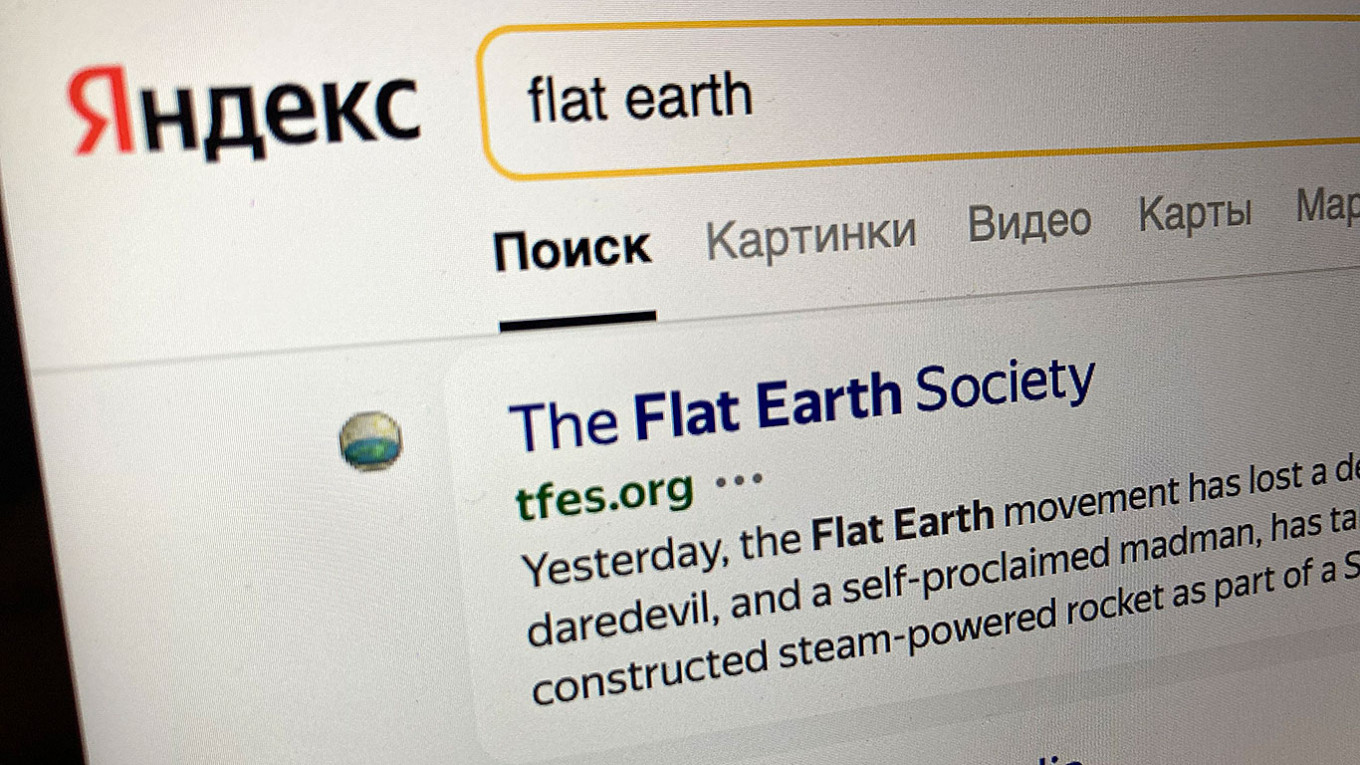Russian search engine Yandex is more likely to promote conspiracy theory-related content in its search results than any other major search engine, according to a new study published Wednesday.
More than half of Yandex’s first-page search results for controversial terms such as “flat earth” and “George Soros” were for pages that promoted conspiracy theories, researchers at the University of Zurich found.
That was a significantly higher share than among the results presented by any of the other search engines tested — Google, Yahoo, Bing and DuckDuckGo, which along with Yandex make up the world’s five largest search portals.
“All search engines except Google consistently displayed conspiracy-promoting results and returned links to conspiracy-dedicated websites in their top results,” the researchers, led by Aleksandra Urman, a postdoctoral researcher at the University of Zurich’s social computing group, found.
“The search engine with the highest proportion of conspiracy-promoting content was Yandex.”
The researchers set up bots to simulate dozens of search queries for six controversial terms — “9/11,” “George Soros,” “Illuminati,” “QAnon,” “flat earth,” and “new world order” — and then tracked and categorized the first-page results delivered by different search engines.
The simulation, which was conducted in English, used computer servers in three different locations on two different dates to mimic real-user behavior. While researchers reported some differences in results based on the search location and time, the biggest factor was the search engine used.
Around 65% of all search results on the first page of Yandex for the terms were links to pro-conspiracy websites or articles. Google returned almost none, while between 25-40% of results at the other three were for pages that advanced the debunked conspiracy theories.
Yandex was also the only site which did not return results to scientific or research websites and was much more likely to include social media posts — which also carried conspiratorial content — in its results.
The study is a preprint publication, meaning it is yet to be peer-reviewed.
Yandex did not respond to The Moscow Times’ request for comment.
The researchers said they picked a mix of terms that would simulate users already interested in conspiracy theories, such as “QAnon,” and more neutral search queries about people and events, such as “George Soros” and “9/11,” to gauge which search engines were more likely to give high prominence to sites dedicated to conspiracy theories in their results — potentially pushing users into reading about conspiracy theories when they were merely seeking basic information or facts.
“While it can be assumed that only users who are already interested in conspiratorial content purposefully navigate to the dedicated niche websites, their appearance in top search results, especially for queries that do not denote conspiracy theories per se (e.g., “9/11” or “George Soros”) can potentially lead to incidental exposure to conspiracy theories. This is troubling, given people’s high trust in search results,” the researchers concluded.
A Message from The Moscow Times:
Dear readers,
We are facing unprecedented challenges. Russia's Prosecutor General's Office has designated The Moscow Times as an "undesirable" organization, criminalizing our work and putting our staff at risk of prosecution. This follows our earlier unjust labeling as a "foreign agent."
These actions are direct attempts to silence independent journalism in Russia. The authorities claim our work "discredits the decisions of the Russian leadership." We see things differently: we strive to provide accurate, unbiased reporting on Russia.
We, the journalists of The Moscow Times, refuse to be silenced. But to continue our work, we need your help.
Your support, no matter how small, makes a world of difference. If you can, please support us monthly starting from just $2. It's quick to set up, and every contribution makes a significant impact.
By supporting The Moscow Times, you're defending open, independent journalism in the face of repression. Thank you for standing with us.
Remind me later.






